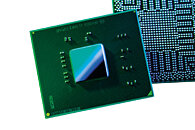
PlayStation VR2 Firmware Update Enables PC Access
The "iVRy VR" community-backed project has slowly chipped away at unlocking the PlayStation VR2's full potential—Sony's $550 (MSRP) virtual reality headset is locked into the PlayStation 5 ecosystem, but many gamers have requested that it become compatible with PC platforms. iVRy's progress on this front could be surpassed by first-party efforts—a month ago, Sony indicated that it was exploring new avenues: "we're pleased to share that we are currently testing the ability for PS VR2 players to access additional games on PC to offer even more game variety in addition to the PS VR2 titles available through PS5. We hope to make this support available in 2024, so stay tuned for more updates." Reports suggest that Sony's second generation product has not met sales expectations—insiders posit that company leadership has requested a pause of production. An entry into the PC market could boost the PS VR2's popularity, but it will face plenty of competition within an already "niche" segment.
iVRy has monitored Sony's progress with great interest—the former's social media account has disclosed the discovery of a new development milestone: "(their) latest firmware update enables PC access! This means it's no longer necessary to use driver/hardware workarounds to make it work on Windows. Still to be confirmed whether this update enables NVIDIA use, but all indications are that Sony's 'PC games' plans involve direct connection." The iVRy VR project has—so far—managed to (successfully) connect the PS VR2 to AMD GPU-based systems. Sony is expected to produce an official means of hooking up their headset to PCs. iVRy discussed this provision in their follow-up post: "a 'VirtualLink' adapter of some kind is still required due to PS VR2 hardware design. If Sony does intend to make 'official' PC drivers, they would need to provide this adapter to end-users."
iVRy has monitored Sony's progress with great interest—the former's social media account has disclosed the discovery of a new development milestone: "(their) latest firmware update enables PC access! This means it's no longer necessary to use driver/hardware workarounds to make it work on Windows. Still to be confirmed whether this update enables NVIDIA use, but all indications are that Sony's 'PC games' plans involve direct connection." The iVRy VR project has—so far—managed to (successfully) connect the PS VR2 to AMD GPU-based systems. Sony is expected to produce an official means of hooking up their headset to PCs. iVRy discussed this provision in their follow-up post: "a 'VirtualLink' adapter of some kind is still required due to PS VR2 hardware design. If Sony does intend to make 'official' PC drivers, they would need to provide this adapter to end-users."





























































